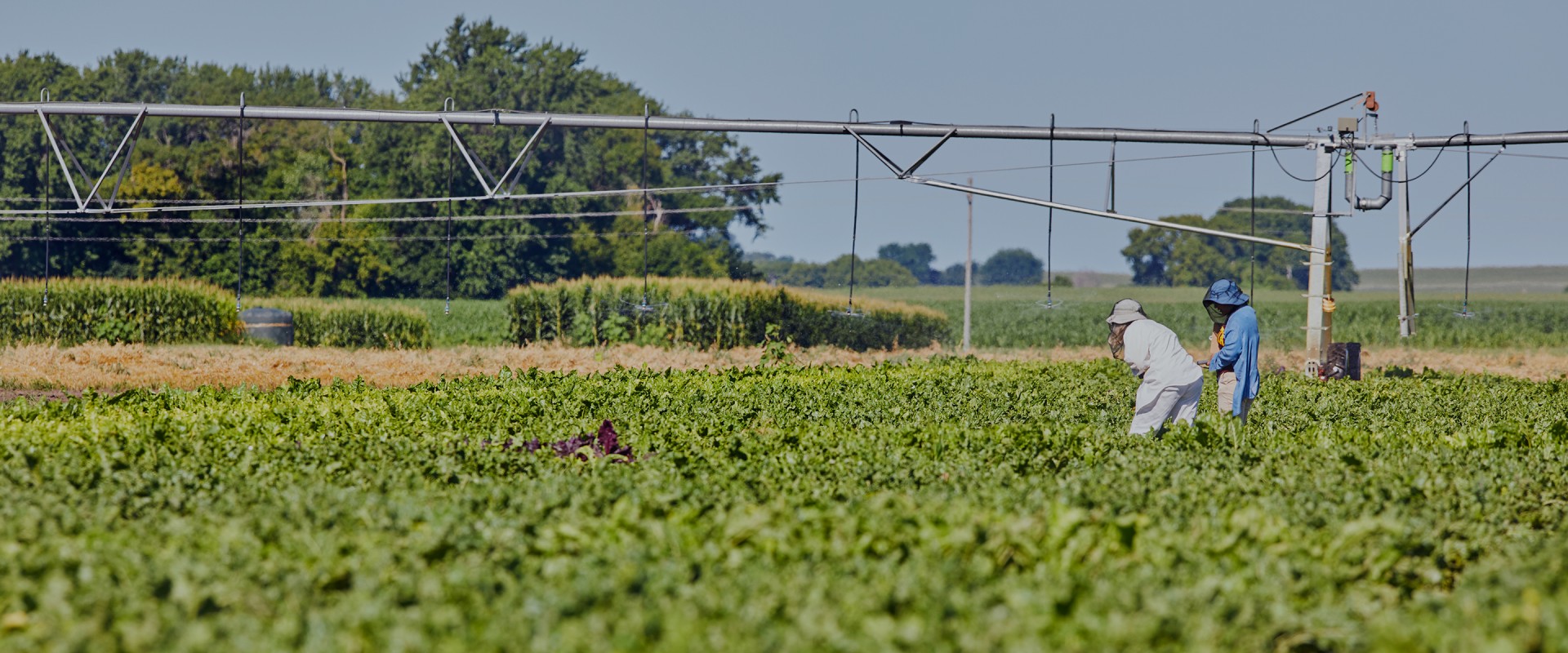

The Betaseed brand is the sugarbeet seed industry’s leading sugarbeet breeder in North America, devoted entirely to developing high performing, multiple disease tolerant sugarbeet seed varieties. Betaseed plant breeders are bringing growers genetics with more value than ever before – accelerating productivity each time a new hybrid is introduced.
Each year, Betaseed has more than 60,000 nursery plots evaluated for hybrid performance and disease tolerance. Breeding sugarbeets is a long-term commitment and takes a dedicated effort, often up to 10 years to develop a new hybrid.
Betaseed played an integral role in the development and introduction of Roundup Ready® sugarbeets for North America and will partner with KWS Saat to introduce the next generation of herbicide tolerance sugarbeets wtihin the next decade.
Betaseed’s industry leading performance has resulted in strong disease tolerance, improved yields and higher revenues for North American sugarbeet farmers. It’s why Betaseed says we're "Breeding Confidence."

Each growing region requires hybrids to be tested, confirming all varieties meet or exceed testing requirements. Contact your local Betaseed sales representative to learn more about the disease tolerance packages Betaseed offers.

This root rot disease is common in areas that have warm, wet weather where optimal air temperatures are 65-85 F. Tolerance to root rot is critical for successful sugarbeet yields. Betaseed hybrids offer varying evels of Aphanomyces tolerance based on a breeding program that has offered tolerant varieties for over 25 years. Seed treatments that include a fungicide known as Tachigaren can also offer protection during emergence and early stand development.

This foliar disease is a fungal pathogen that thrives when weather is warm, wet and humid. Losses in grower fields are common, so prevention and control measures are critical for crop success. Betaseed breeds seed varieties offering varying levels of Cercospora tolerance to combat this disease in growers' fields.

This viral disease is most common in the western United States and impacts plant health due to the curling of the beet leaves as the disease takes hold. With the curled leaves the plant cannot take up nutrients during photosynthesis which impacts root health and overall plant vitality. Hybrids with tolerance to curly top are available from Betaseed and most often combined with insecticide seed treatments that help protect seedling health.

This root disease caused by a fungus first presents itself with foliar symptoms, where leaves wilt, veins turn yellowish and leaves eventually appear scorched. Hybrid tolerance to Fusarium is necessary to protect sugarbeet health. Betaseed offers Fusarium tolerance in many of its hybrids for regions where Fusarium is present in the soil.

This fungal disease is primarily characterized by white blotches that occur on plant leaves 2-6 months after planting. If an entire field becomes affected, the field appears with a bluish cast. Betaseed offers hybrids with powdery mildew tolerance and if the disease progresses, control measures are strongly recommended in addition to genetic tolerance.

Commonly referred to as Rhizoctonia root rot this disease is due to a soilborne fungus. Symptoms typically appear at the crown rosette where leaf development is impacted. Tolerance is bred into Betaseed hybrids offering varying levels of plant protection for multiple markets across North America.

The name rhizomania describes the root symptoms of a plant impacted by the viral disease Beet Necrotic Yellow Vein Virus (BNYVV). “Crazy root," or rhizomania, impacts root development and is one of the most destructive sugarbeet diseases around the world. Genetic resistance is the most important tool sugarbeet growers have, and many Betaseed hybrids offer MultiSource® tolerance which offers protection due to multiple sources of disease resistance.

Betaseed hybrids offer tolerance to root aphid, a pest that can cause leaf wilting and threaten overall plant health. Resistance is bred into the hybrid and varying levels of resistance are available in some markets.

Betaseed hybrids offer tolerance to root maggot, another plant pest that can cause leaf wilting and threaten overall plant health. Tolerance is bred into the hybrid and varying levels of resistance are available in some markets.